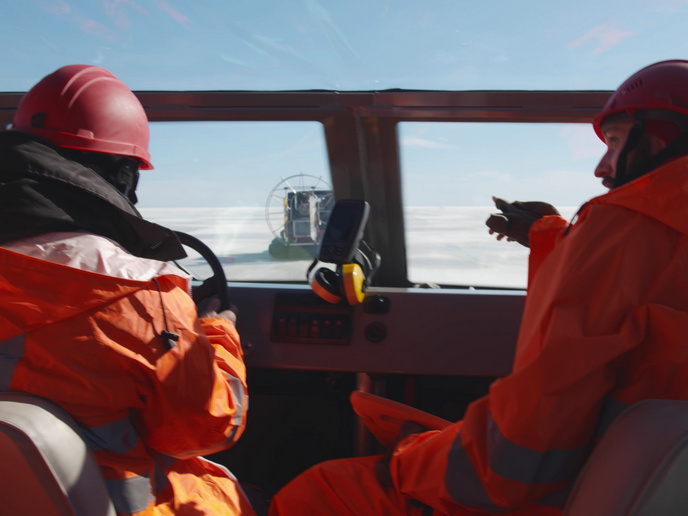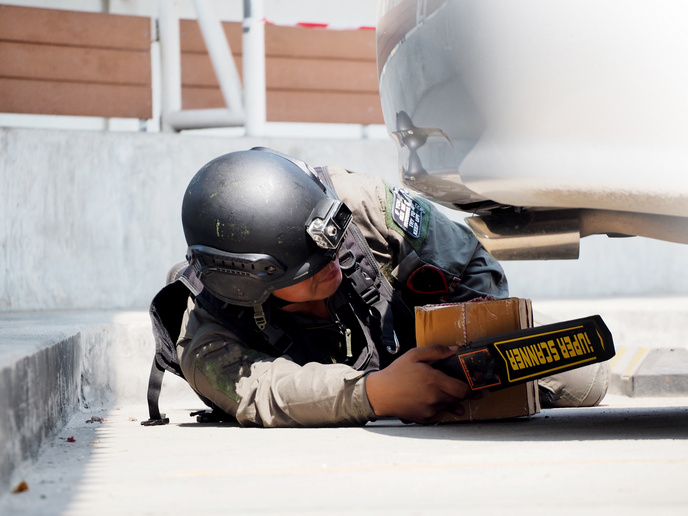Strengthening emergency preparedness in the Arctic
The world is divided into search and rescue regions. The Joint Rescue Coordination Centres (JRCC) in Norway for example have overall operational responsibility for the Norwegian region and can assist neighbouring regions should they ask for help. “There are many countries across the Arctic region that have similar responsibilities, including Canada, Finland, Iceland, Sweden, the United States and so on,” explains the JRCC’s Mikel Dominguez Cainzos. “There is also a lot of academic interest in the Arctic. Some universities for example have expertise in cold weather survival.”
Advancing Arctic search and rescue knowledge
The EU-funded ARCSAR project, coordinated by the JRCC, sought to bring these practitioners and academics together. The goal was to better share search and rescue knowledge and create a platform for collaboration moving forward. What made the project especially innovative was that it also involved industries active in the Arctic region. These were industries that might be in need of search and rescue services, such as cruise shipping. The project also included service providers, such as an Italian company with expertise in monitoring the Arctic through satellites. “The Arctic is a harsh environment to work in, but so is the extreme south,” says Cainzos, ARCSAR project coordinator. “So, we had New Zealand partners as part of the team, who were able to bring in their expertise and perspective.”
Emergency preparedness on the Arctic seas
The first steps involved mapping the needs of practitioners and industries active in the region. This helped the project team to identify gaps in knowledge and technology. These issues, such as ensuring communication in harsh conditions, were analysed and discussed at various events, where experts were invited to present and speak. Out of this work came a series of policy briefs and recommendations focused on improving emergency preparedness. The project team also carried out virtual exercises and live field exercises. For these live tests, the project invited the EU Agency for the Space Programme to test the effectiveness of their satellite constellations for search and rescue operations. “Having groups of different people in small vessels also meant that it was impossible to avoid conversation,” adds Cainzos. “This helped to develop trust.”
Network for Arctic experts and industries
For Cainzos, the most important result has been the creation of a network of practitioners, experts, industries and service providers. “This means that if any of us is in need of information or help, all we have to do is ask,” he says. “This is invaluable and will make our jobs much easier.” The network will be sustained long after the completion of the ARCSAR project. ARCSAR also helped to reveal some significant knowledge gaps. For example, maritime civilian search and rescue guidelines to deal with biological or nuclear incidents have been developed. Cainzos and his team are currently in talks with ARCSAR partners about creating harmonised guidelines for mass rescue operations. Another project success has been the development of a video to help passengers better understand search and rescue protocols. “We realised that passenger information usually stops at putting on the life jacket,” notes Cainzos. “We saw in live exercises that passengers were often unsure and scared about being transferred from one boat to another, etc. So, we created a video that fully explains the whole process.” The video, which is in the final stages of editing, will be used by cruise companies to inform passengers in the future.
Keywords
ARCSAR, Arctic, emergency, rescue, satellites, shipping, life jacket




